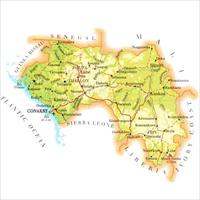GUINEA: Medical services paralysed for day two of health strike

Entering a second day of a near-total work stoppage in and around the capital Conakry, almost all the city’s government health care workers continued to refuse to perform most medical services as they hold out for back pay, a salary increase and promotions.
A similar strike last month also grounded medical services.
The strike continuation continues to paralyse public health care facilities.The Donka University Hospital, the country’s largest, remained shuttered on the capital’s outskirts.
“There is not even a minimum level of emergency services,” said a would-be patient returning to her house in the Camayenne neighbourhood not far from the hospital, who wanted to remain anonymous.
Another turned-away patient, Doumbouya Hadjab Mariama, said the government needs to find a way to end this strike soon, “If not, it is the people who will suffer. I am coming back from Donka hospital where my baby who has bronchitis was not able to get care because of the doctors’ strike.”
She said she had arrived at the hospital early in the hopes of intercepting a doctor.
At the Ignace Deen University Hospital in Conakry, which normally has more than 1,000 visits per day, the doors were also shut. Down the corridors, there were no hospital staff to tend to hospitalised patients.
“Since Monday [08 September], we have been left to ourselves here. There are no doctors,” said a trauma unit patient who did not want to share his name.
Hospital workers say they will continue to strike until their demands are met.
“To show our determination,” said a surgeon on strike who did not want to reveal his identity, “we refused to collect our August earnings yesterday morning [08 September].”
Health worker union leader Pierrette Tolno told IRIN the strike will continue until the government changes workers’ conditions, which she says have remained unchanged since 1999.
She added the health workers on strike want 18 months of back pay for 625 health workers and promotions.
 Back and Next - Back and Next
Back and Next - Back and Next See Also - See Also
See Also - See Also